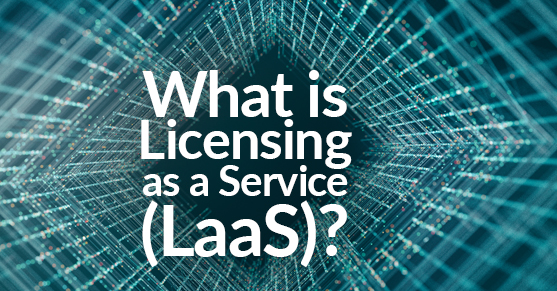Software licensing has had its share of changes through the age of digital evolution. As the requirements and regulatory standards for licensing expanded, the need for more comprehensive solutions to misuse grew with them. As the leader in addressing the issue, Licensing as a Service (LaaS) acts as a better way to manage your organization’s software licenses and streamline the process of license moderation and scalability.
What is Licensing as a Service (LaaS)?
LaaS is a modern approach to software licensing in which a provider enables an organization to support its various software and application licenses without the need for an in-house licensing engine. Unlike traditional models, LaaS providers can provide cloud-based services and support and customized billing options (like monthly subscriptions). The real advantage comes from the ability to manage software licenses through web-based configuration — i.e., the provider can keep up with licensing terms and models for a given product.
How is LaaS Different from Traditional Licensing?
Traditional licensing goes back to fundamental types of software licensing. At some point in our lives, we were all working with written licenses and physical contracts, which outlined license type, the terms of service, and usage/audit rights for spot-checking when needed. Obviously, the downside to these in modern business is that an organization’s tech stack is typically so expansive that they’re hard to keep track of, they don’t allow for easy scalability, and it isn’t easy to regulate usage.
The issues with paper licenses ultimately led to license keys or “dongles” (typically a thumb drive), which act as a software protection lock to moderate usage and distribution. Instead of simply logging into the software with user credentials, the dongle works to provide an additional firewall, and the user can only use the software if they have the dongle plugged in. Again, those were hard to keep track of (think about how many thumb drives you’ve lost), they were easily broken, and compatibility issues were a regular occurrence.
In comes LaaS to combat traditional licensing’s tricky nature and offer a flexible and easy way to manage software licensing. As opposed to conventional methods, LaaS makes keeping track of an organization’s various licenses and licensing types a cinch. And bringing your licensing strategy up to speed as numerous benefits.
The Benefits of LaaS
Let’s say there’s an organization with 500+ employees, numerous departments, and dozens of job-specific applications and software they need. Through LaaS, the company can maintain all records of the term-limits on the licenses, their specific uses (e.g., test vs. production), how they’re being deployed, etc. If someone at the company leaves, the LaaS provider can terminate their license or transfer it to the employee who will be replacing them. Additionally, the LaaS model offers a few other advantages:
- Whatever needs are, LaaS tailors the solution to each software suite and deploy a solution that helps the organization manage each license.
- Oftentimes, software providers may have licensing models that a company isn’t aware of, and the LaaS provider can step in and offer them better options. With an understanding of the technical landscape, for instance, the provider might find that a concurrent license works better or that they need to license by feature.
- Users can opt for global coverage with significant IP protection and regulatory enforcement.
- Support packages to mediate the process of reinstating out-of-date licenses, give vendor access and handle additional licensing issues when they arise.
Frictionless Licensing with LaaS
Leveraging LaaS within your organization opens the door to frictionless operations. Although your tech stack licenses may not seem like a contributor on the road to becoming a frictionless enterprise, it plays a vital role in alleviating the stresses and tediousness of “manual” license management. With that type of hands-off approach to license management, you can ensure that your employees are accessing the software they need without the roadblocks of traditional licensing.
Has your business employed LaaS to optimize its software licensing? Tell us about it in the comments below. If you’re interested in learning more about the benefits of LaaS, feel free to reach out to us here.

